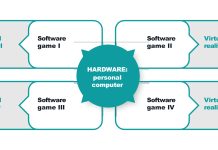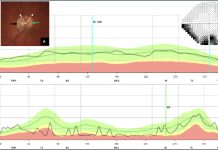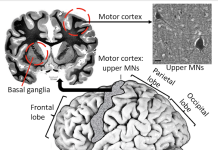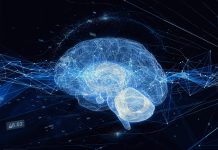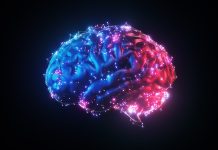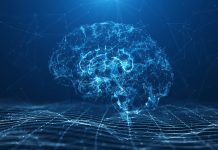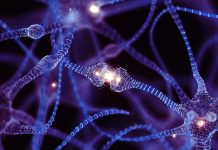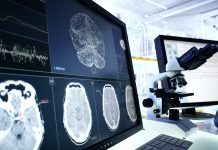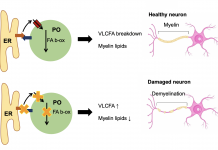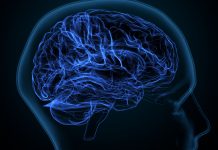Open Access Government produces compelling and informative news, publications, eBooks, and academic research articles for the public and private sector looking at health, diseases & conditions, workplace, research & innovation, digital transformation, government policy, environment, agriculture, energy, transport and more.
Home 2025
Archives
Positioning spontaneous activity as ‘Adhesive Dots’: Lessons from AI for data integration in neuroscience
In the previous article, I argued that advancing data integration in neuroscience requires incorporating resting-state spontaneous activity into each experiment, framing it as ‘adhesive dots.’ Here, I extend that discussion by drawing strategic lessons from the success of large language models (LLMs) and by concretizing the earlier claims from the perspective of data.
Quantum mechanics: Are we seeing reality as it is?
Dr Peter Verheyen from the Sola Society and Academy at Vienna University examines whether quantum mechanics and information serve as the fundamental descriptions of reality.
OCT: A practical tool for diagnosing buried optic disc drusen
Dr Adèle Ehongo addresses the diagnosis of buried optic disc drusen (BODD) using Optical Coherence Tomography (OCT) and the importance of correlating visual field abnormalities and OCT data, especially in normal tension glaucoma, to distinguish it from Optic Disc Drusen (ODD).
Protecting infants from brain damage: A focus on HIE
Lee J. Martin, PhD from Johns Hopkins University School of Medicine, discusses the pathology of infant hypoxic-ischemic encephalopathy (HIE), and the research he and his team are conducting to understand cell death mechanisms related to HIE and therefore identify new therapies.
A ten-minute brain rest lets AI connect the dots across neuroscience
Dr. Masanori Shimono from Keio University highlights the importance of recording spontaneous neural activity in neuroscience and suggests that modern AI techniques can reveal meaningful patterns, offering insights into fundamental brain functions.
Addressing the challenges of dementia care
Individuals living with dementia and their care partners often face numerous challenges that can lead to feelings of isolation. This article outlines how the Jockey Club Centre for Positive Ageing’s crisis management hotline service has become a vital resource for supporting the wellbeing of those affected by dementia.
Metabolic diseases and the brain: Obesity, type 2 diabetes and neurofibrosis
Garron Dodd, Head of the Metabolic Neuroscience Laboratory at The University of Melbourne, Australia and Founder, Chief Scientific Officer of Gallant Bio, investigates the brain ‘goo’ behind obesity and type-2 diabetes - and how we can treat it.
Quantum bits and consciousness: Biochemical information processing
Dr Peter Verheyen, DMD from the Sola Society & Academy, at Vienna University, explores quantum bits and consciousness, focusing this time on biochemical information processing.
The neuroscience of metabolism
Given that the brain can detect and respond to changing levels of body fat and blood sugar, Michael W. Schwartz, MD from the University of Washington Medicine Diabetes Institute, explains how the brain can be targeted to treat obesity and diabetes.
The future of AVS, dizziness, and vertigo in emergency departments Part V: Rise of...
In the final article of this five-part series, Dr Millie Nakatsuka discusses emerging technologies relevant to acute vestibular syndrome (AVS) in the emergency healthcare setting.
A game that poses a challenge to artificial intelligence
Steven J. Brams, hailing from New York University, unveils a game that poses a challenge to artificial intelligence.
Moving past animal experiments to understand human neurological disease
Richard J. Miller, PhD, Professor Emeritus of Pharmacology at Northwestern University Feinberg School of Medicine, says that the belief monkeys and other animals are essential for performing translationally useful research for human neurological disease is outdated and incompatible with 21st-century science.
Understanding and supporting neurological conditions among the incarcerated
Samuel Han and Audrey Nath discuss neurological conditions among the incarcerated, who they argue are a medically underserved population.
Exploring neurological & mental brain disorders in Europe
European Brain Council provides a very helpful update on Brain disorders in Europe – neurological and mental alike.
CorTec’s Brain Interchange™ system: Revolutionizing brain therapy with closed-loop neuromodulation
CorTec’s Brain Interchange™ system offers closed-loop neuromodulation, revolutionizing brain therapy by precisely adapting treatment based on individual needs.
Peroxisomes, lipids, and neurodegeneration
Prof. Michael Schrader at the University of Exeter looks to understand the role of peroxisomes in human health and disease.
Fostering nonhuman primate (NHP) brain research without animal sacrifice
The MacBrain Resource Center (MBRC) at Yale University School of Medicine is positioning itself at the forefront of innovative ways to provide cost-effective means for scientists to conduct de novo nonhuman primate brain research with extant materials.
Psychedelic therapies are returning to psychiatry
Professor Erika Dyck, Canada Research Chair in History of Health & Social Justice at the University of Saskatchewan, looks to psychedelic therapies outside the pharmaceutical industry to aid mental illness.
Updating services for people with younger onset dementia and their caregivers
Researchers from the Jockey Club Centre for Positive Ageing analyse the services available for people with younger onset dementia, looking to improve the lives of those affected and their carers.
FMRI neurofeedback: Novel interventions for depression
Kymberly Young, an Associate Professor of Psychiatry at the University of Pittsburgh School of Medicine, discusses neurofeedback as a novel non-invasive intervention for depression.


